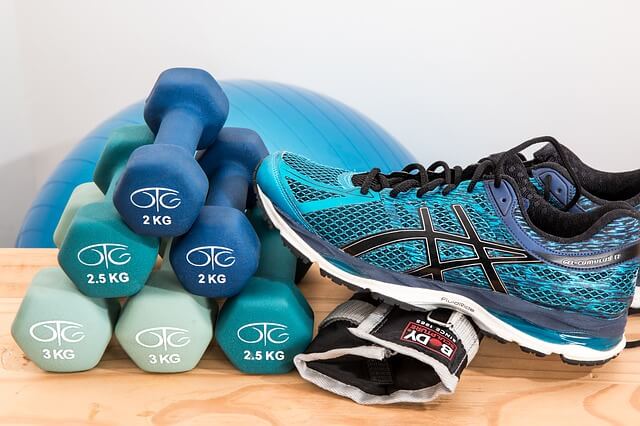
01 Jan Getting the Right Vitamins and Nutrients When You’re New to Exercise
A mere 22.9% of American adults meet the guidelines for both aerobic and muscle-strengthening physical exercise, according to a recent study from the Centers for Disease Control and Prevention. If you’re someone who wants to start exercising, it can be difficult to know where to begin. Personal trainers at the gym can show you how to use the equipment and tell you how to get you started, but when it comes to nutrition, you’re largely left to your own devices. Understanding what nutrients, vitamins, and supplements your body may need when you’re new to exercise can help you to improve your stamina, energy levels and prevent painful cramps so that you can keep going.
Carbohydrates are top of the list
There have been a lot of fad diets over the years that have led to people thinking they need to cut their carbohydrate intake to lose weight. Carbs are one of the most important nutrients you need when you start a new exercise program. This is because the main role of carbs is to provide your body with energy, making them the most important fuel for any exercise. The body can store carbs in the muscles and liver as glycogen and use them when needed as fuel for the brain and muscles during any physical exercise. However, it is important to eat the types of carbs derived from fruits and vegetables. Avoid carbs derived from white sugar and processed foods. Eating a diet low in natural, healthy carbohydrates can leave you feeling lethargic and unable to meet your fitness goals. Whole grain starchy foods are a good source of carbohydrates and include fiber, various vitamins, and minerals. Aim for them to make up about a third of your diet each day.
Minerals that fight off cramps
One thing you may notice when you’re new to exercise is that you start experiencing cramps, particularly in your calves and feet. It’s commonly experienced by runners, swimmers, and cyclists as these are leg-dominant exercises. These aerobic exercises are hugely beneficial for your health, so don’t quit them due to cramps as there’s usually an easy fix, despite the agonizing pain they cause. Not consuming enough potassium, sodium, calcium, magnesium, or a combination of is usually the problem. Collectively, they are electrolytes and you can easily add them to your diet by drinking a sports drink while exercising or tracking your intake through food or supplements. Sports drinks are good because they usually contain all essential electrolytes, as well as ensuring your body is well hydrated, which can further help to prevent cramps.
The sunshine vitamin
Exercising should give you the happy side effect of feeling more energized, but if you’re not getting enough vitamin D in your diet then you may be feeling the opposite. Known as the sunshine vitamin, your body makes vitamin D when the sun hits cholesterol in your skin’s cells, which then provides energy for vitamin D synthesis to happen. Not only does vitamin D make you feel happier, but it also helps with energy levels. A study from Science Daily found that participants who took vitamin D supplements for 10-12 weeks reported significant improvements in their fatigue levels. Therefore, it can be a good idea to ditch the treadmill for a run outside, but even then some people struggle to get enough vitamin D from the sun if they live in colder parts of the world, so supplements may be necessary throughout at least some of the year.
Exercise is about more than what you do at the gym or during team sports. Understanding how to fuel your body and get the right nutrients, vitamins, and minerals that your body needs can help you to reach your fitness goals and improve your overall health and well-being.
